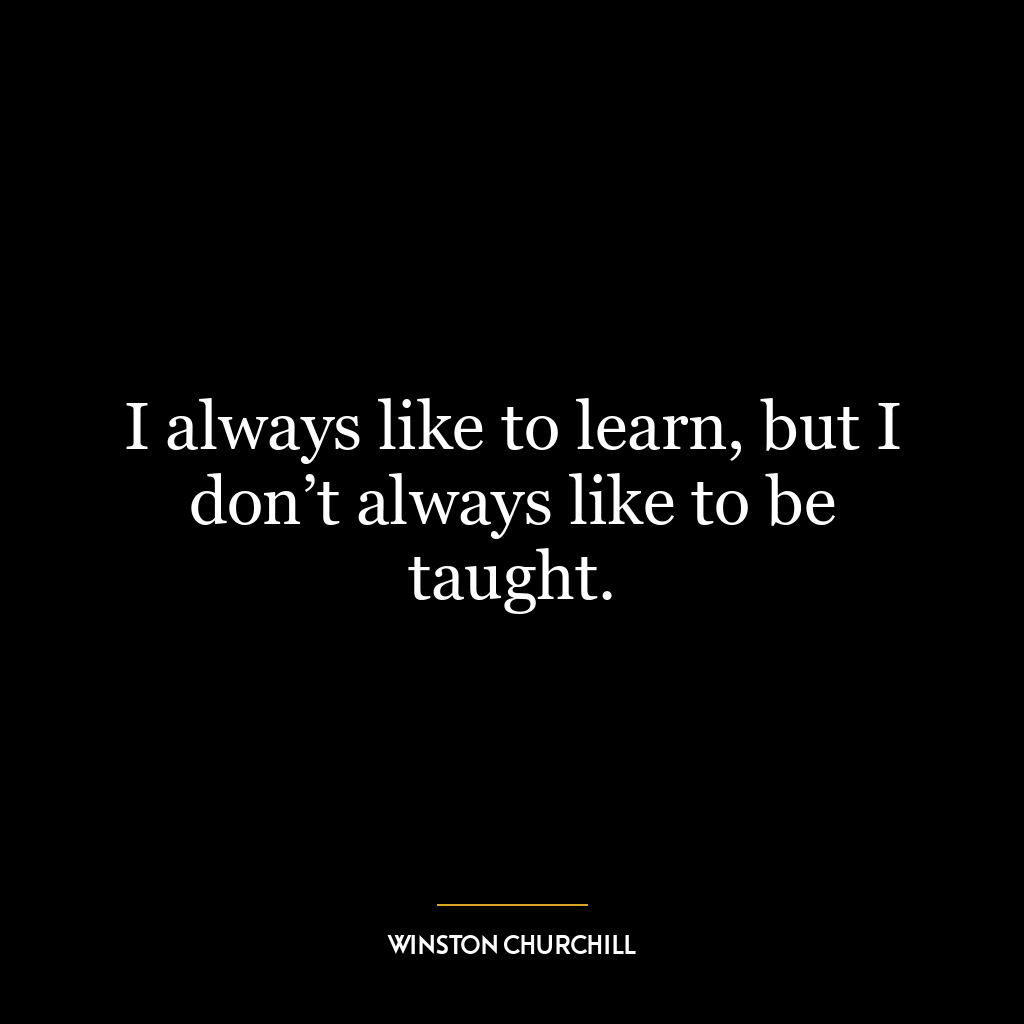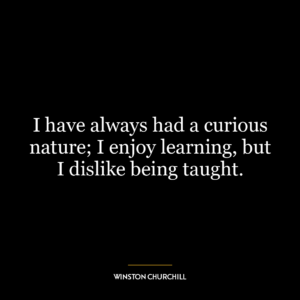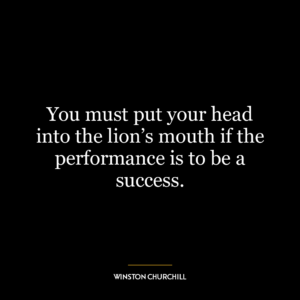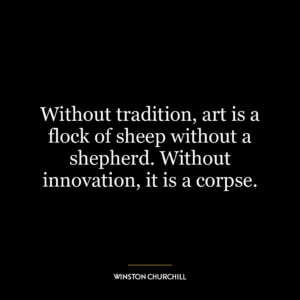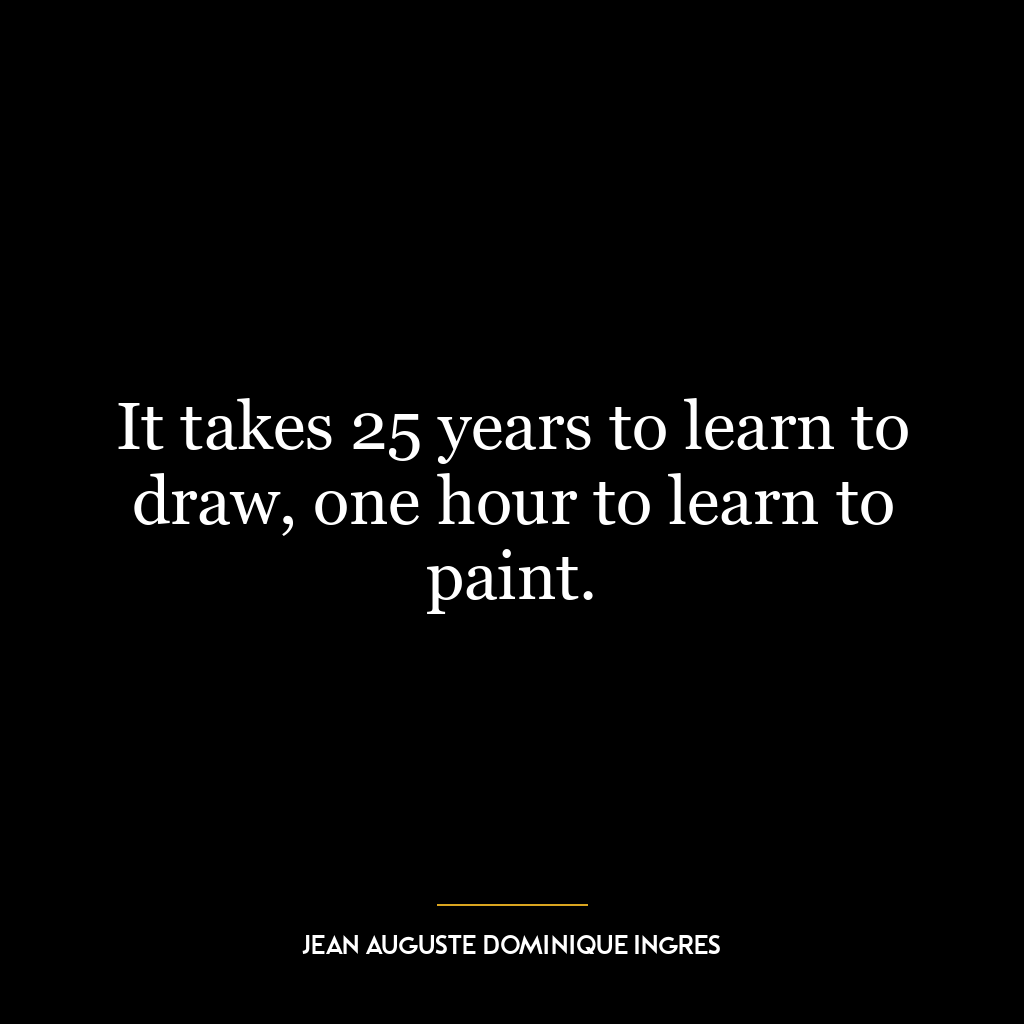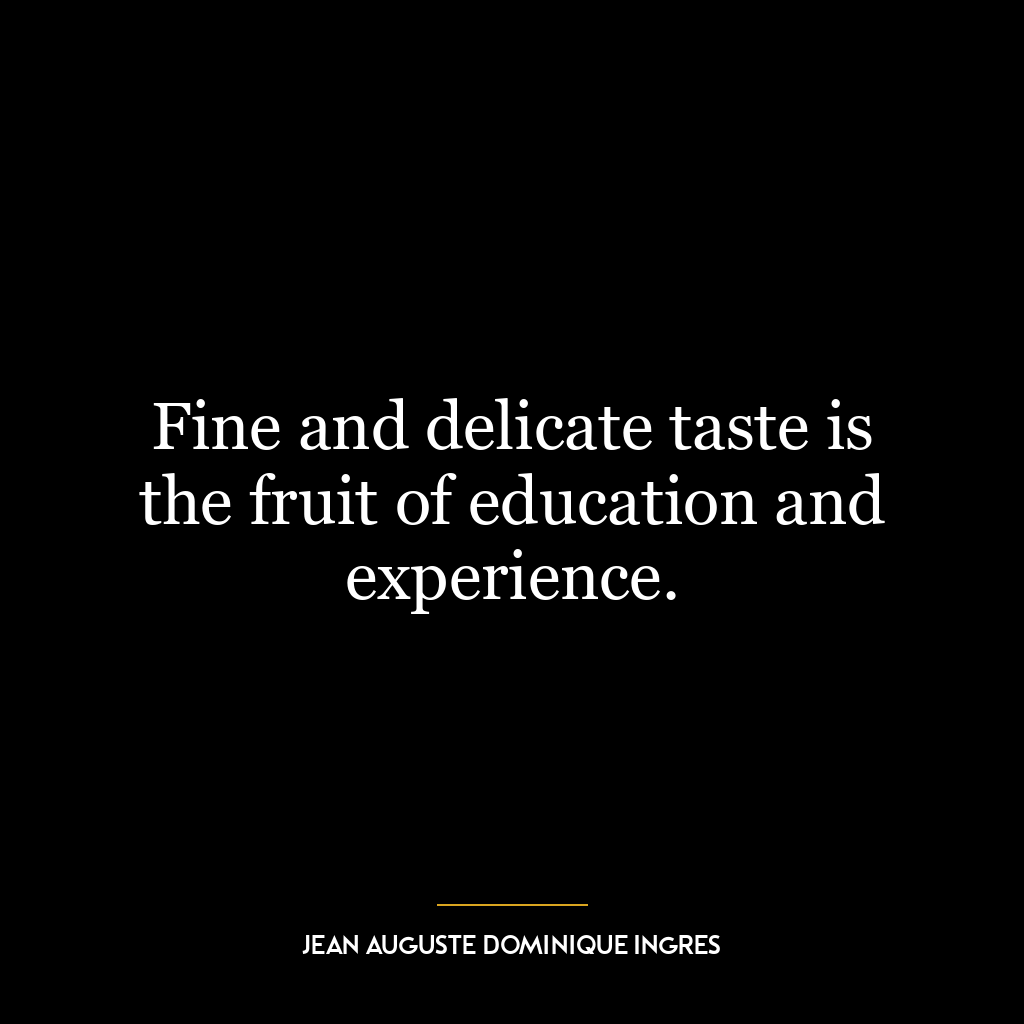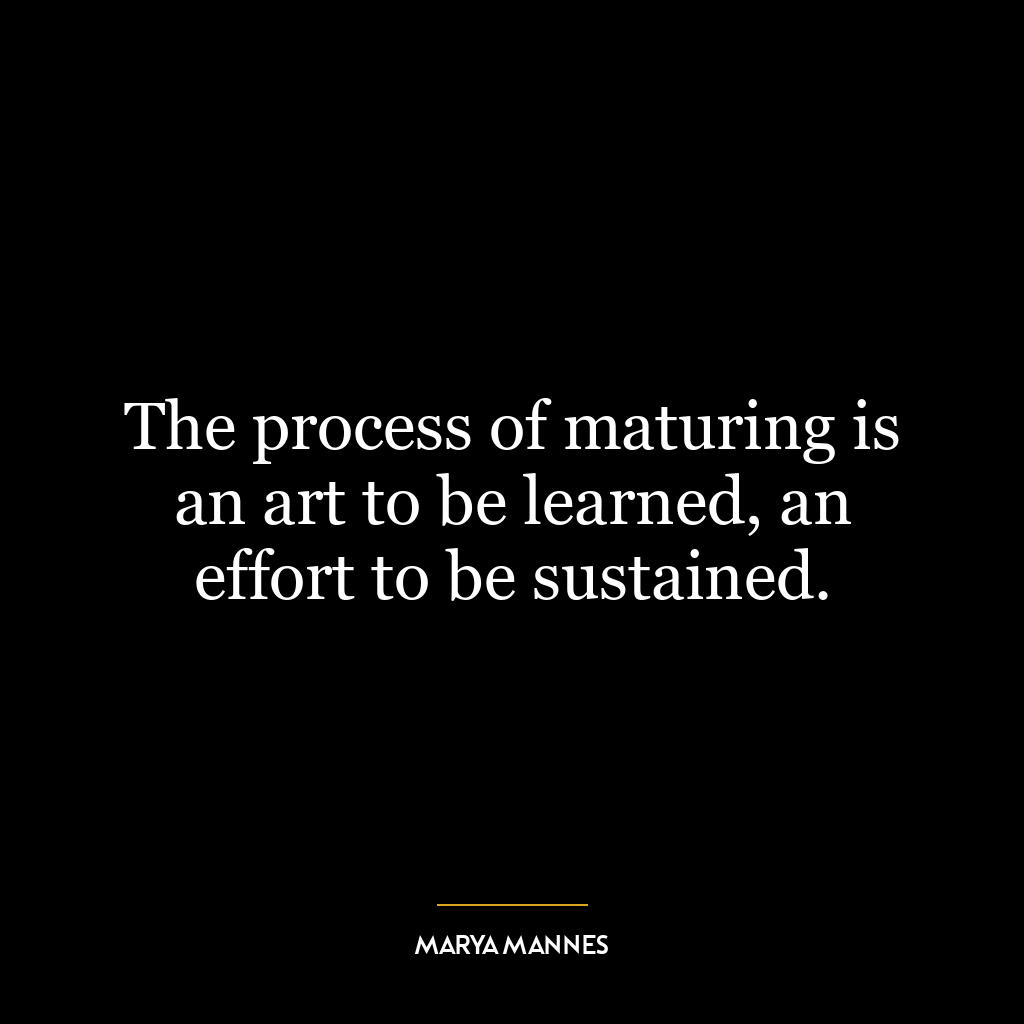I always like to learn, but I don’t always like to be taught.
This quote, ”I always like to learn, but I don’t always like to be taught,” speaks to the inherent love for learning that many of us possess, but also highlights the discomfort or resistance we sometimes feel towards formal or imposed education. It’s a reflection of the human spirit’s natural curiosity and desire for self-discovery, contrasted with a resistance to rigid, structured, or forced learning.
The first part of the quote, “I always like to learn,” acknowledges the innate curiosity and the joy of discovery that drives human progress. We are born learners, with an instinctive fascination with the world around us. This desire to learn, to know more, to understand better, is a fundamental part of our human nature.
The second part, “but I don’t always like to be taught,” reflects a discomfort or resistance towards formalized education or instruction. This could be due to a variety of reasons – the teaching style may not resonate, the content may not be interesting or relevant, or the pace may be too fast or too slow. It also points to the fact that learning is a deeply personal and individual process, and what works for one person may not work for another.
In today’s world, this quote is particularly relevant. With the rise of the internet and digital technology, we have an unprecedented access to information and knowledge. We can learn about virtually anything, anytime, anywhere – often without a formal teacher. This self-directed, self-paced learning can be incredibly empowering and fulfilling, allowing us to follow our interests and passions, and learn in ways that work best for us.
In terms of personal development, this quote encourages us to take charge of our own learning and growth. Rather than waiting to be taught, we can proactively seek out knowledge, skills, and experiences that will help us grow and develop. It also reminds us that while teachers and mentors can guide and support us, ultimately, we are responsible for our own learning.
At the same time, it’s important to recognize the value and importance of teachers and formal education. They provide structure, guidance, and a shared body of knowledge that self-directed learning may not always offer. The key is to find a balance between self-directed learning and formal education, and to remain open and curious, always eager to learn, whether we are being taught or not.

